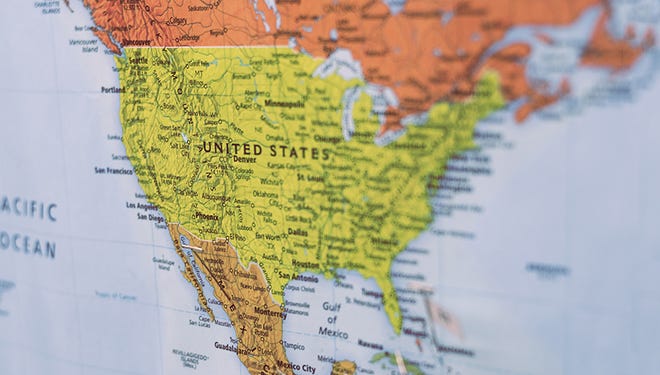U.S. launches second trade dispute over Canada's dairy rules
 Colleen Kottke
Colleen Kottke
The United States is fighting back against its northern trade partner by filing a second formal trade complaint against the Canadian government's dairy policy under the new North American trade agreement.
Trade tensions between the two trading partners escalated after Ottawa made clear that it refuses to meet its signed treaty obligations under the U.S.-Mexico-Canada Agreement (USMCA) concerning dairy market access.
In response, the U.S. is again challenging Canada's tariff-rate quota (TRQ) allocation measures, which deny allocation access to eligible applicants including retailers, food service operators and other types of importers, and impose new conditions on the allocation and use of the TRQs.
TRQs are a set amount of dairy imports allowed to cross into Canada without being subject to prohibitively high tariffs.
The U.S. is also challenging Canada's failure to fully allocate its annual dairy TRQs; instead parceling out a few months' quota at a time.
For years, U.S. trade officials have accused Justin Trudeau's government of erecting a tariff wall to shelter its dairy farmers from American dairy product imports.
The first dispute settlement against Canada regarding USMCA was launched in 2021; and in January, the dispute panel ruled Canada to be non-compliant with their dairy TRQ commitments under the trade agreement.
In reaction to the decision, Canada finalized a new set of rules on May 16, which industry officials say are likely to produce the same results as the ones that first drew the complaint.
FarmFirst General Manager Jeff Lyon says Canada's latest action shows it is unwilling to to amend its "dairy trade-distorting" practices.

"Canada's tightly regulated and expensive milk production system is not an excuse for Canadian trade officials to utilize delay tactics and not comply with trade provisions," Lyon said. "Its actions reinforce the notion that is is not interested in being a reliable trading partner."
U.S. Trade Representative Katherine Tai who said she was “deeply troubled” by the new policy, says Canada is undermining the market access it agreed to provide in the USMCA.
"We communicated clearly to Canada that its new policies are not consistent with the USMCA and prevents U.S. workers, producers, farmers and exporters from getting the full benefit of market access that Canada committed to under the USMCA," she said.

U.S. Secretary of Agriculture Tom Vilsack said Canada's protectionist dairy policies are a top concern for the USDA.
"Canada has failed to honor and implement its USMCA commitments by removing the trade restrictions that disadvantage and deter U.S. dairy producers and exporters from enjoying real and meaningful access to the Canadian market."
Mary Ng, Canada's minister of International Trade, Export Promotion, Small Business and Economic Development said in a statement that her country has "met its obligations...to ensure our TRQ system is compliant".
Brody Stapel, president of Edge Dairy Farmer Cooperative, which has aggressively pushed for enforcement action since the first issue rose nearly a year ago, said Canada needs to hold up its end of the bargain.

"Our farmers were meant to see major opportunities under USMCA – an estimated 50 percent increase annually in the value of exports. Unfortunately, we're still waiting," said Stapel. "We can't get the high quality cheese from our members here in the Midwest onto Canadian grocery store shelves."
Jim Mulhern, president and CEO, of the National Milk Producer's Federation says Canada’s actions must have consequences.
“Prime Minister Trudeau regularly pledges Canada supports a rules-based global order built on cooperation and partnership, yet Canada continues to flout these trade commitments and plays games rather than meet its signed treaty commitments,” Mulhern said. "Given Canada’s history of persistent violations and the high likelihood Ottawa will once again disregard its USMCA obligations, USTR and USDA must be prepared to deploy the strongest-possible retaliatory measures envisioned under the USMCA should this ‘whack-a-mole’ approach continue."

If the U.S. and Canada are not able to resolve U.S. concerns through consultations, the U.S. may request the establishment of a panel under USMCA.